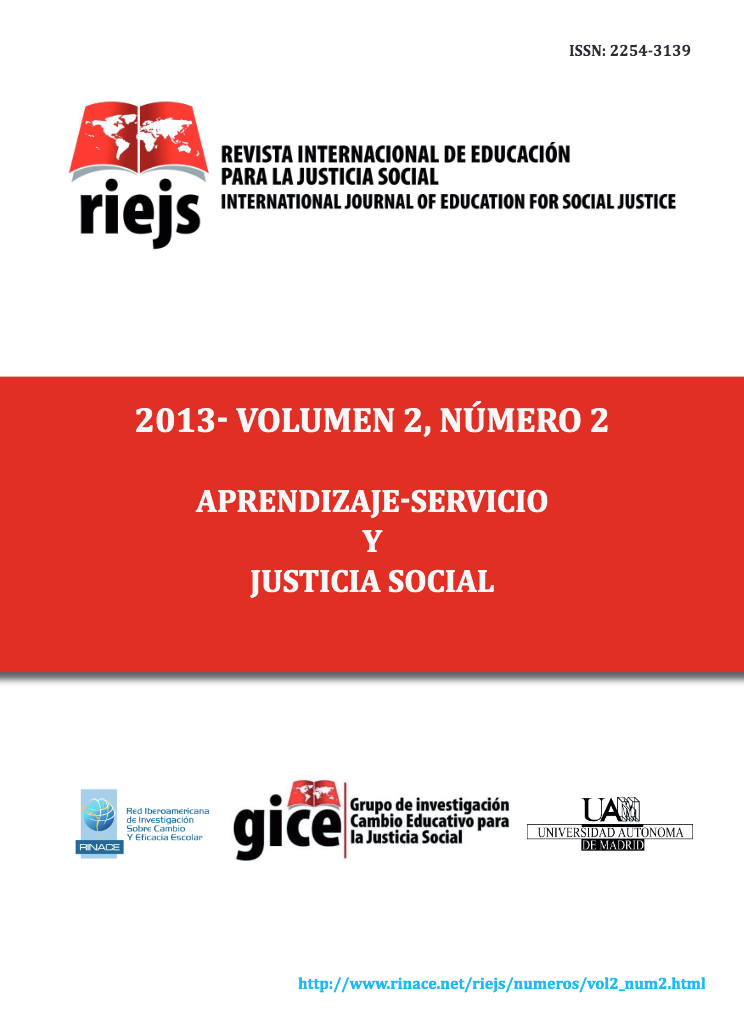Development and evaluation of psychosocial skills through a Service-Learning program in university students
Keywords:
Service-Learning, Subjective well-being, Social adjustment, Psychosocial development, Emotional development, Social development, Interpersonal competence, Experiential learning, Competency based education.Copyright (c) 2015 Revista Internacional de Educación para la Justicia Social (RIEJS)

This work is licensed under a Creative Commons Attribution-NonCommercial-NoDerivatives 4.0 International License.
Abstract
Service-Learning can encourage the development of psychosocial skills, as well as ethical, civic and cognitive, facilitating university students’ integral growth. Its practice has been associated in literature mainly with positive effects in academic, social and ethic development. However, it has been a scarcely addressed area from a psychosocial perspective. There is empirical evidence that relates formal conducts of help and prosocial behavior with the development of socio-emotional skills, so it would be expected that practice in service-learning would also have positive effects on this level. The objective of the study is to test the development of psychosocial skills through a Service-Learning Program on students. Given this goal, a pilot study was conducted on students from Deusto University. Two variables were selected: Subjective Well-being and Social Adaptation. The hypothesis is that students that complete the Program will improve levels in these variables over those who don’t complete it. Two groups of students were compared according to having completed the Program or not, through a quasi-experimental study with measurements pre and post-test. Statistically significant positive effects are found, with an effect size between small and moderate, in the variables studied in the group of students that completed the Program. The results prove positive effects of the Program over students’ Subjective Well-Being and Social Adaptation. Several explanatory mechanisms are discussed, as well as the potential of Service-Learning as a promoter agent for emotional and social skills among university population.
